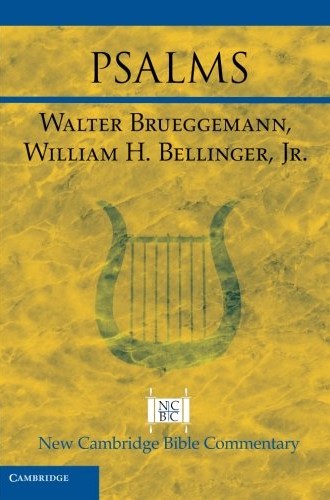Psalms, by Walter Brueggemann and William H. Bellinger Jr.

Psalms
I am often asked by pastors and seminary students, “What is the best commentary available on the Psalms?” I interpret the question to mean, “What commentary will best help me preach and teach from the Psalter?” Even with that more narrow focus, the question is nearly impossible to answer. In the past 20 years nearly every denomination and university press has published at least one commentary on the Psalms, so we have an incredibly rich trove of such resources at our disposal.
Though it may be impossible to identify a single Psalms commentary as the best for Christian exposition, two have long stood above the rest for their balanced, insightful, and theologically rich interpretation: J. Clinton McCann Jr.’s treatment of the Psalms in the New Interpreter’s Bible and James L. Mays’s commentary in the series Interpretation: A Bible Commentary for Teaching and Preaching. This new commentary by Walter Brueggemann and William H. Bellinger Jr. deserves a place alongside the work of McCann and Mays.
The excellence of this commentary should come as no surprise. Brueggemann, professor emeritus at Columbia Theological Seminary, is one of the most prolific Old Testament scholars of our time. He is the author of more than 100 books, including several important works on the Psalms. Bellinger is professor of Old Testament and chair of the religion department at Baylor University. He is widely recognized as an authority on the Psalter, with four books and numerous articles on the Psalms to his credit.




